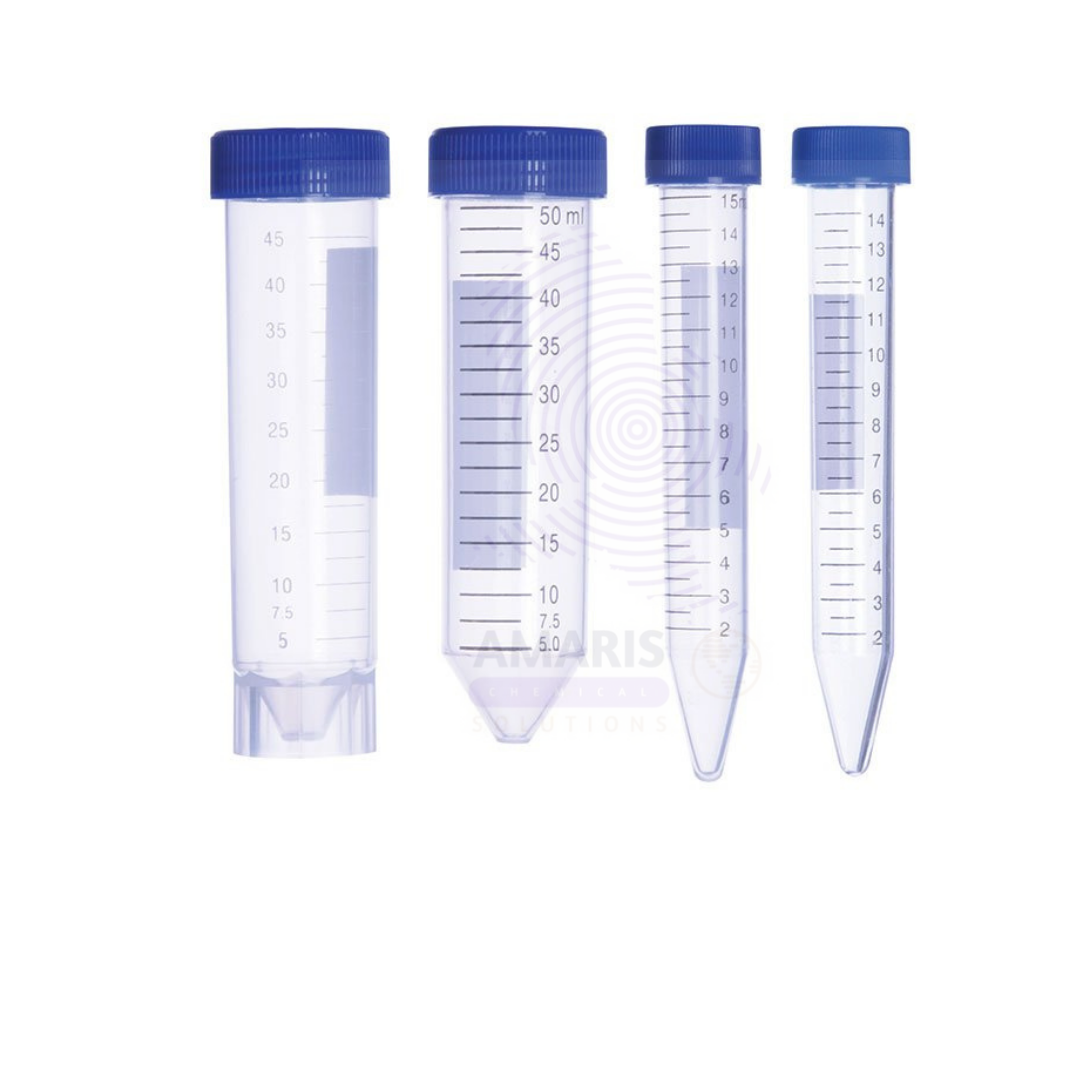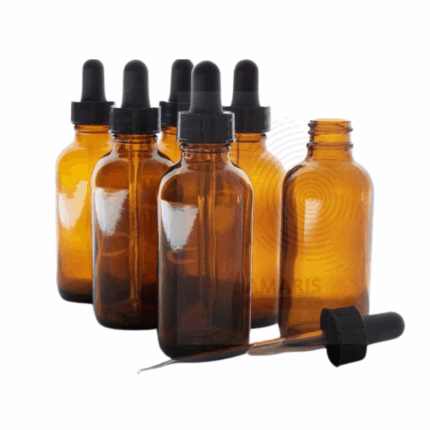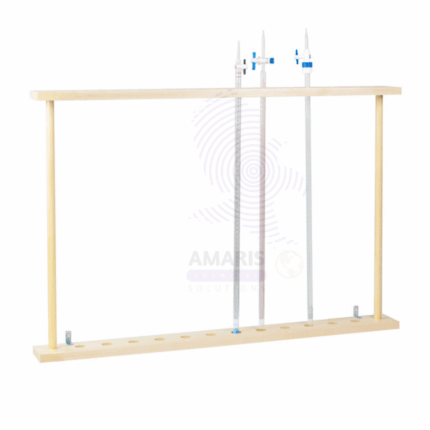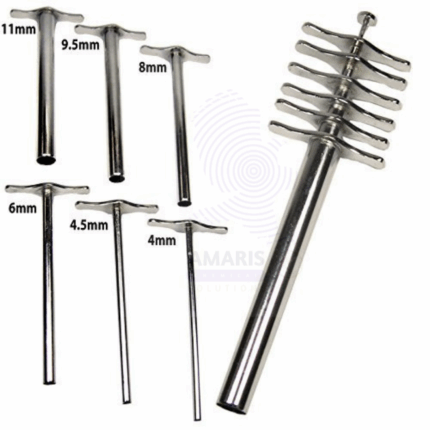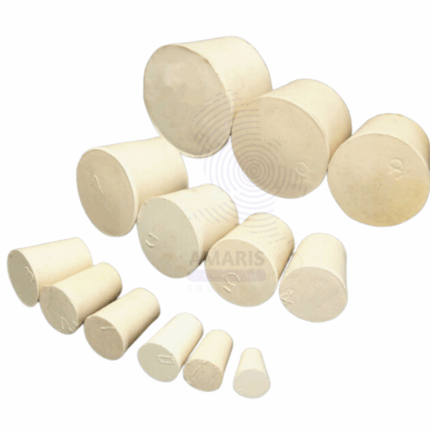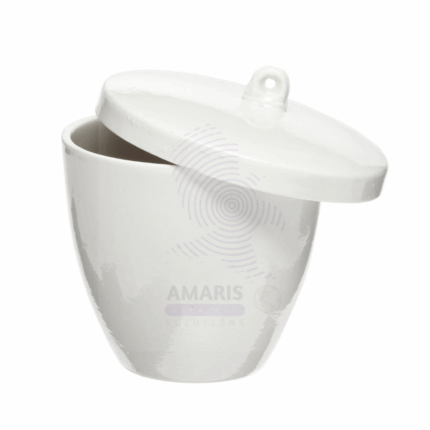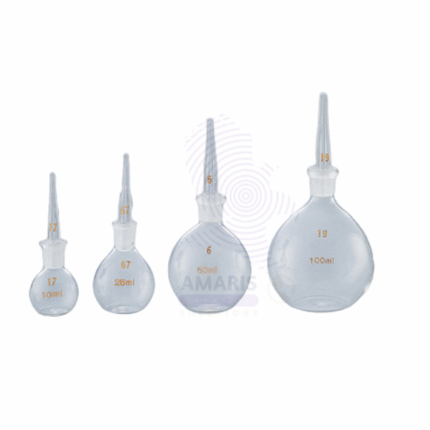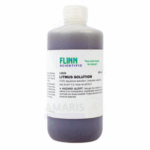
Litmus Solution Extra Pure
$ 17.55 Original price was: $ 17.55.$ 17.43Current price is: $ 17.43.
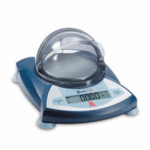
Balance Electronic Ohaus Scout Pro
$ 309.12 Original price was: $ 309.12.$ 309.06Current price is: $ 309.06.
Centrifuge tubes
$ 9.20 Original price was: $ 9.20.$ 9.08Current price is: $ 9.08.
Whatsapp Order
Centrifuge Tubes are specially designed containers used for holding samples during centrifugation. Made from high-quality, chemically resistant plastic or glass, these tubes withstand the high centrifugal forces generated during lab procedures. Available in various volumes and designs, including conical bottoms for easy sediment collection, centrifuge tubes are essential for separating components in biological, chemical, and industrial samples. They are compatible with a wide range of centrifuge models and ensure sample integrity and safety during processing.
Description
Table of Contents
Toggle
Centrifuge tubes
Primary Uses
- Laboratory Applications
- Holding and separating blood, urine, and other biological samples.
- Collection and sedimentation of cells, proteins, or other particulates.
- Sample preparation for molecular biology, biochemistry, and clinical tests.
- Storage of centrifuged samples for further analysis.
Secondary Uses
- Industrial Applications
- Separation and analysis of chemical mixtures in quality control labs.
- Testing and sample handling in pharmaceutical manufacturing processes.
KEY PRODUCT FEATURES
1. Basic Identification Attributes
- Product Type: Centrifuge Tube
- Material: Polypropylene, polyethylene, or borosilicate glass
- Volume: Typically 1.5 mL to 50 mL
- Closure: Snap cap, screw cap, or sealing film
2. Physical & Chemical Properties
- Chemical Resistance: Resistant to acids, bases, and organic solvents
- Temperature Tolerance: Suitable for use in refrigerated and heated centrifuges
- Transparency: Clear or amber options available for light-sensitive samples
3. Safety & Hazard Attributes
- Risk of breakage or leakage if improperly handled
- Non-toxic materials, but handle with care to avoid contamination
4. Storage & Handling Attributes
- Store in a clean, dry place away from direct sunlight
- Use sterile tubes for sensitive biological samples
- Dispose of according to laboratory biohazard protocols if contaminated
5. Regulatory & Compliance Attributes
- Manufactured under ISO standards for laboratory consumables
- Compliant with relevant safety and quality regulations
6. Environmental & Health Impact
- Tubes are often recyclable but must be decontaminated before disposal
- Minimize waste by using appropriate tube sizes for samples
SAFETY HANDLING PRECAUTIONS
Safety Handling Precautions
- Wear gloves and eye protection when handling biological samples
- Avoid applying excessive force to caps and tubes to prevent breakage
First Aid Measures
- In case of exposure to sample material, follow standard laboratory protocols
- Clean and disinfect any spills immediately
Firefighting Measures
- Fire Hazard: Low; tubes are generally made of flame-resistant plastics or glass
- Extinguishing Media: Water spray, foam, or dry chemical agents suitable for surrounding materials
- Special Precautions: None specific to tubes
Related products
Amber Bottles Polystop
Amber Bottles Polystop are durable, amber-colored glass bottles equipped with polystop closures designed to provide excellent protection against light-sensitive contents. The amber tint helps protect contents from UV light degradation, making these bottles ideal for storing pharmaceuticals, essential oils, chemicals, and laboratory reagents. The polystop closure ensures a secure, airtight seal to preserve product integrity, prevent contamination, and maintain freshness. These bottles are widely used in pharmaceutical, cosmetic, and chemical industries due to their reliability and protective qualities.
Burette stand for drying
The Burette Stand for Drying is a laboratory accessory designed to securely hold burettes in an upright position during drying and storage. Made from durable, corrosion-resistant materials such as stainless steel or coated metal, the stand ensures stability and prevents damage or contamination of delicate glassware. Its design facilitates proper air circulation, promoting efficient drying and maintaining the cleanliness of burettes between uses.
Cork borer set
The Cork Borer Set is a precision instrument set used in laboratories for cutting uniform cylindrical holes through corks, rubber stoppers, and soft polymers. Typically made of durable stainless steel, the set includes multiple hollow borers of varying diameters with sharpened edges, along with a cleaning rod or handle. It is essential for creating accurate openings to insert glass tubing or thermometers into stoppers for experimental setups involving sealed vessels or distillation systems.
Cork Borer Set Sharpener
The Cork Borer Set Sharpener is a specialized tool designed for honing and maintaining the cutting edges of cork borers. Essential for extending the life and performance of laboratory cork borers, this sharpener typically features a conical or tapered grinding surface made of hardened steel or fine abrasive material. It ensures precision cutting by restoring sharpness, which is critical for clean, accurate boring through rubber stoppers, corks, and similar materials. Durable and easy to use, it is a vital accessory in laboratory maintenance kits.
Cork to fit boiling tube cork
Cork to fit boiling tube cork is a precision-cut natural or synthetic cork designed to seal boiling tubes securely in laboratory settings. These corks provide an airtight seal while resisting mild heat and chemical exposure typically encountered in general lab procedures. They help prevent contamination, evaporation, or spillage of contents during storage, gentle heating, or experimental handling. Available in various diameters, these corks are essential for maintaining experimental integrity in both research and industrial laboratories.
Cork to fit conical flask
Cork to Fit Conical Flask is a tapered sealing component made from natural or synthetic cork, designed to provide a snug, airtight closure for conical (Erlenmeyer) flasks. These stoppers are essential for laboratory procedures requiring the containment of samples, prevention of evaporation, or protection from airborne contaminants. Their compressibility, resistance to mild chemicals, and reusability make them ideal for both general lab work and industrial testing environments. The corks are precisely sized to fit standard flask openings, ensuring compatibility with a wide range of flask volumes.
Crucible with lid
Crucible with Lid is a heat-resistant container used in laboratories and industries to heat, melt, or calcine substances at very high temperatures. Typically made from materials such as porcelain, alumina, or graphite, these crucibles can withstand thermal shock and chemical corrosion. The accompanying lid helps contain the sample, minimize contamination, and reduce material loss during heating or combustion processes.
Density Bottle
The Density Bottle is a precision glassware device used for determining the density of liquids by measuring a known volume and mass. Typically made from high-quality borosilicate glass, the bottle features a tight-fitting stopper with a capillary hole to allow excess liquid to escape, ensuring volume accuracy. It is commonly used in laboratory settings for experiments in physical chemistry, materials science, and industrial quality control processes. The device provides a reliable method for comparing the density of various substances with high repeatability.


 Preservatives(food)
Preservatives(food) Flavor Enhancers
Flavor Enhancers Acidulants
Acidulants Sweeteners
Sweeteners Antioxidants
Antioxidants Colorants(food)
Colorants(food) Nutraceutical Ingredients (food)
Nutraceutical Ingredients (food) Nutrient Supplements
Nutrient Supplements Emulsifiers
Emulsifiers
 Collectors
Collectors Dust Suppressants
Dust Suppressants Explosives and Blasting Agents
Explosives and Blasting Agents Flocculants and Coagulants
Flocculants and Coagulants Frothers
Frothers Leaching Agents
Leaching Agents pH Modifiers
pH Modifiers Precious Metal Extraction Agents
Precious Metal Extraction Agents
 Antioxidants(plastic)
Antioxidants(plastic) Colorants (Pigments, Dyes)
Colorants (Pigments, Dyes) Fillers and Reinforcements
Fillers and Reinforcements Flame Retardants
Flame Retardants Monomers
Monomers Plasticizers
Plasticizers Polymerization Initiators
Polymerization Initiators Stabilizers (UV, Heat)
Stabilizers (UV, Heat)
 Antifoaming Agents
Antifoaming Agents Chelating Agents
Chelating Agents Coagulants and Flocculants
Coagulants and Flocculants Corrosion Inhibitors
Corrosion Inhibitors Disinfectants and Biocides
Disinfectants and Biocides Oxidizing Agents
Oxidizing Agents pH Adjusters
pH Adjusters Scale Inhibitors( water)
Scale Inhibitors( water)
 Antioxidants(cosmetic)
Antioxidants(cosmetic) Emollients
Emollients Fragrances and Essential Oils
Fragrances and Essential Oils Humectants
Humectants Preservatives
Preservatives Surfactants(cosmetic)
Surfactants(cosmetic) Thickeners
Thickeners UV Filters
UV Filters
 Fertilizers
Fertilizers Soil Conditioners
Soil Conditioners Plant Growth Regulators
Plant Growth Regulators Animal Feed Additives
Animal Feed Additives Biostimulants
Biostimulants Pesticides (Herbicides, Insecticides, Fungicides)
Pesticides (Herbicides, Insecticides, Fungicides)
 Active Pharmaceutical Ingredients (APIs)
Active Pharmaceutical Ingredients (APIs) Excipients
Excipients Solvents(pharmaceutical)
Solvents(pharmaceutical) Antibiotics
Antibiotics Antiseptics and Disinfectants
Antiseptics and Disinfectants Vaccine Adjuvants
Vaccine Adjuvants Nutraceutical Ingredients (pharmaceutical)
Nutraceutical Ingredients (pharmaceutical) Analgesics & Antipyretics
Analgesics & Antipyretics
 Analytical Reagents
Analytical Reagents Solvents(lab)
Solvents(lab) Chromatography Chemicals
Chromatography Chemicals Spectroscopy Reagents
Spectroscopy Reagents microbiology-and-cell-culture-reagents
microbiology-and-cell-culture-reagents Molecular Biology Reagents
Molecular Biology Reagents Biochemical Reagents
Biochemical Reagents Inorganic and Organic Standards
Inorganic and Organic Standards Laboratory Safety Chemicals
Laboratory Safety Chemicals Specialty Laboratory Chemicals(Special Laboratory Equipment)
Specialty Laboratory Chemicals(Special Laboratory Equipment)
 Demulsifiers
Demulsifiers Hydraulic Fracturing Fluids
Hydraulic Fracturing Fluids Scale Inhibitors(oil)
Scale Inhibitors(oil) Surfactants(oil)
Surfactants(oil) Drilling Fluids
Drilling Fluids
 Dyes and Pigments
Dyes and Pigments Bleaching Agents
Bleaching Agents Softening Agents
Softening Agents Finishing Agents
Finishing Agents Antistatic Agents
Antistatic Agents
 Admixtures
Admixtures Waterproofing Agents
Waterproofing Agents Sealants and Adhesives
Sealants and Adhesives Curing Compounds
Curing Compounds Concrete Repair Chemicals
Concrete Repair Chemicals Anti-Corrosion Coatings
Anti-Corrosion Coatings
 Surfactants(cleaning)
Surfactants(cleaning) Builders
Builders Enzymes
Enzymes Solvents (Cleaning)
Solvents (Cleaning) Fragrances
Fragrances
 Electronic Chemicals
Electronic Chemicals Catalysts
Catalysts Lubricants
Lubricants Photographic Chemicals
Photographic Chemicals Refrigerants
Refrigerants Automotive chemicals
Automotive chemicals Pyrotechnic Chemicals
Pyrotechnic Chemicals
 Biodegradable Surfactants
Biodegradable Surfactants Bio-based Solvents
Bio-based Solvents Renewable Polymers
Renewable Polymers Carbon Capture Chemicals
Carbon Capture Chemicals Wastewater Treatment Chemicals
Wastewater Treatment Chemicals
 Pigments
Pigments Solvents(paint)
Solvents(paint) Specialty Coatings
Specialty Coatings Binders/Resins
Binders/Resins Additives
Additives Driers
Driers Anti-Corrosion Agents
Anti-Corrosion Agents Functional Coatings
Functional Coatings Application-Specific Coatings
Application-Specific Coatings
 Fresh Herbs
Fresh Herbs Ground Spices
Ground Spices Whole Spices
Whole Spices Spice Blends
Spice Blends Dried Herbs
Dried Herbs
 Leavening Agents
Leavening Agents Dough Conditioners
Dough Conditioners Flour Treatments
Flour Treatments Fat Replacers
Fat Replacers Decoratives
Decoratives Preservatives(baking)
Preservatives(baking)
 Plasticizers & Softeners
Plasticizers & Softeners Reinforcing Agents
Reinforcing Agents Adhesion Promoters
Adhesion Promoters Vulcanizing Agents
Vulcanizing Agents Antidegradants
Antidegradants Blowing Agents
Blowing Agents Fillers & Extenders
Fillers & Extenders Accelerators & Retarders
Accelerators & Retarders